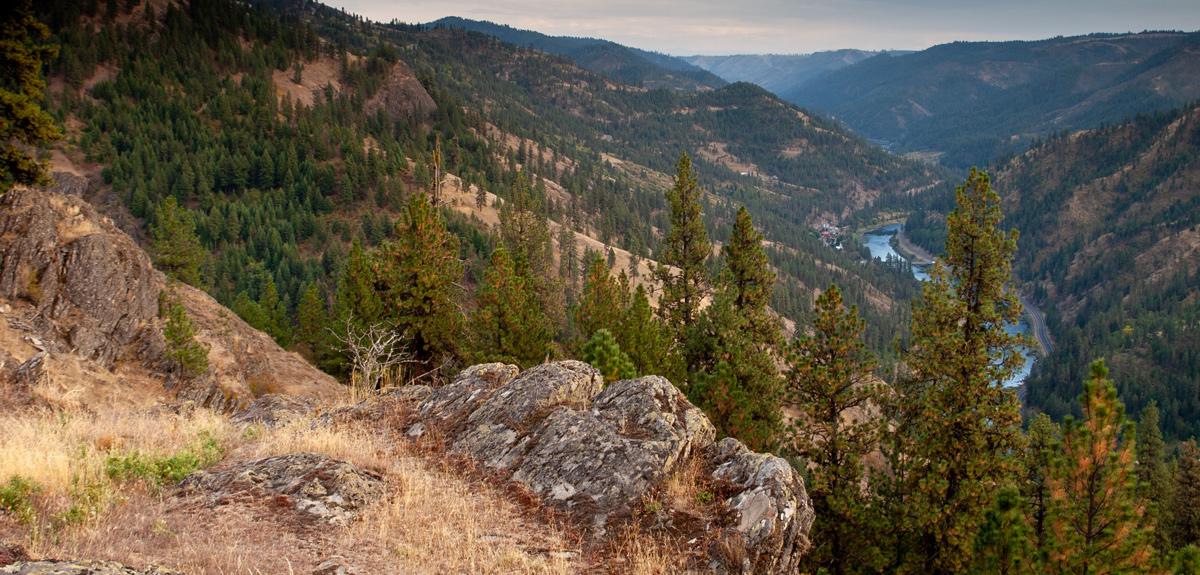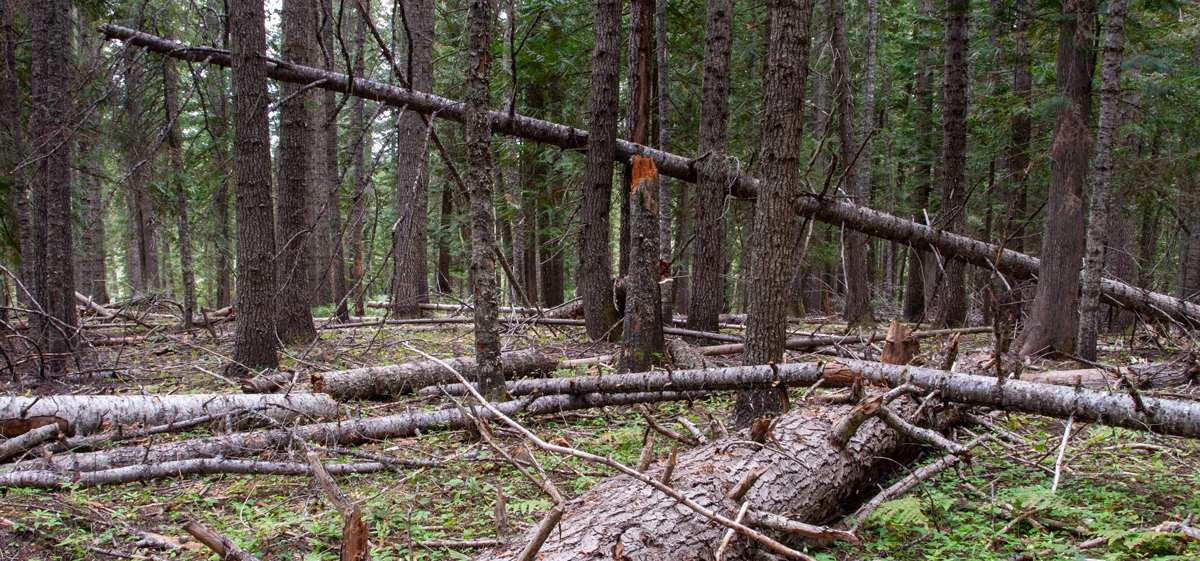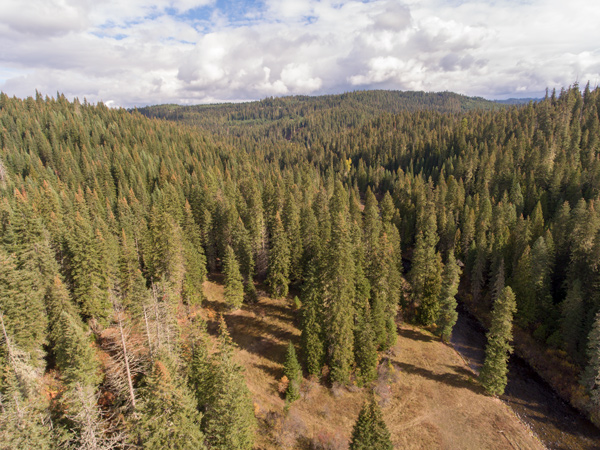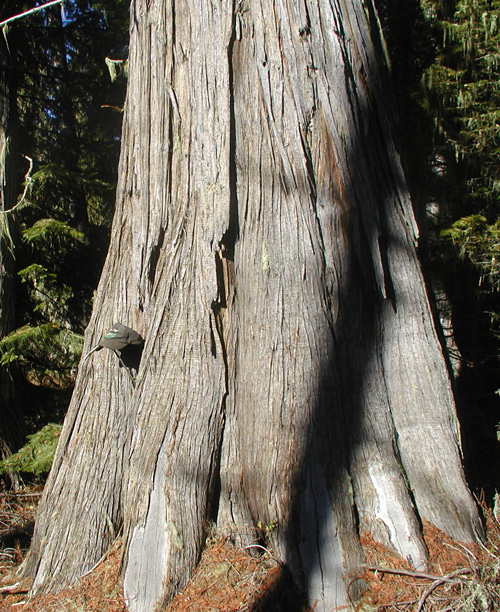Clearwater River and Pheasant Camp, Lolo Trail, ID Reubin Field and a Nez Perce man leave Weippe Prairie with salmon, camas bread, and berries for the main party. Clark visits Twisted Hair‘s fishing camp on the Clearwater River. The main party struggles through forests strewn with fallen timber.
Still Separated[1]Originally aired weekdays by Yellowstone Public Radio during the Bicentennial observance of 2003-2006. Narrated by Hal Hansen. Scripts by Whit Hansen and Ed Jacobson. Produced by Leni Holliman. © … Continue reading
Clark: Twisted Hair’s Camp
Clearwater Canyon near Jim Ford Creek
© 19 September 2016 by Kristopher K. Townsend. Permission to use granted under the Creative Commons Attribution-Share Alike 4.0 International license.
Indian Information
Sent out all the hunters early in different directions to Kill Something and delayed with the Indians to prevent Suspicion & to acquire as much information as possible. one of them Drew me a Chart of the river & nations below informed of one falls below which the white men lived from whome they got white beeds cloth &c. &c.
—William Clark
Food for the Main Party
I purchased as much Provisions as I could with what fiew things I chaned to have in my Pockets, Such a Salmon Bread roots & berries, & Sent one man R. Fields with an Indian to meet Capt. Lewis
—William Clark
Twisted Hair’s Fishing Camp
we did not arrive at the Camp of the Twisted hare [Twisted Hair] but oppost, untill half past 11 oClock P M. found at this Camp five Squars & 3 Children. my guide called to the Chief who was Encamped with 2 others on a Small island in the river, he Soon joind me, I found him a Chearfull man with apparant Siencerity, I gave him a medal &c. and Smoked untill 1 oClock a. m. and went to Sleep.
—William Clark
Lewis: Pheasant Camp
Leaving the Mountains
Nez Perce Trail near Pheasant Camp
© 19 September 2009 by Kristopher K. Townsend. Permission to use granted under the Creative Commons Attribution-Share Alike 4.0 International license.
A great portion of the timber through which we passed along this ridge is dead, and a considerable part fallen; and our horses are weak and much jaded. One of them got into a small swamp, and wet a bale of merchandize. About 4 o’clock in the afternoon we got down the mountain to a creek
—Patrick Gass
Growing Weak
I find myself growing weak for the want of food and most of the men complain of a similar deficiency and have fallen off very much.
—Meriwether Lewis
Pheasant Camp (view north)
© 6 October 2016 by Kristopher K. Townsend. Permission to use granted under the Creative Commons Attribution-Share Alike 4.0 International license.
Pheasant Camp
encamped in a small open bottom where there was tolerable food for our horses. I directed the horses to be hubbled to prevent delay in the morning being determined to make a forced march tomorrow in order to reach if possible the open country. we killed a few Pheasants, and I killd a prarie woolf which together with the ballance of our horse beef and some crawfish which we obtained in the creek enabled us to make one more hearty meal, not knowing where the next was to be found.
—Meriwether Lewis
Large Cedar Trees
the Arborvita increases in quantity and size. I saw several sticks today large enough to form eligant perogues of at least 45 feet in length.—
—Meriwether Lewis
Weather Diary
Weather at rise
Wind at rise
Weather at 4 P.M. Wind at 4 P.M. fair S E fair S W. I arrive at the Flat head [Nez Perce] Camp of 200 lodges in a Small prarie
—Meriwether Lewis and William Clark[2]To assist the reader, the editor of this web page has omitted the date column and spelled out some abbreviations.
Weippe Prairie is a High Potential Historic Site along the Lewis and Clark National Historic Trail managed by the U.S. National Park Service. A 274-acre tract in the prairie is managed by the Nez Perce National Historic Park.
Notes
| ↑1 | Originally aired weekdays by Yellowstone Public Radio during the Bicentennial observance of 2003-2006. Narrated by Hal Hansen. Scripts by Whit Hansen and Ed Jacobson. Produced by Leni Holliman. © 2003 by Yellowstone Public Radio. |
|---|---|
| ↑2 | To assist the reader, the editor of this web page has omitted the date column and spelled out some abbreviations. |






